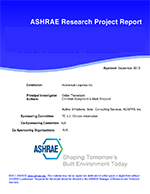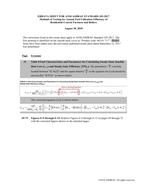A significant amount of energy is required to condition the ventilation air in a typical air-conditioning system. This paper presents an analysis of potential energy savings for conditioning fresh air with a membrane-based energy recovery ventilator. Two correlations are theoretically developed and experimentally validated to summarize the heat and moisture exchange effectiveness for the membrane system. To account for the increased fan power required to overcome the flow resistance over the unit, the pressure drops are also given with various membrane spacing and airflow rates. The theoretical energy requirements for conditioning the ventilation air are obtained based on hourly weather data in Hong Kong. The recovered sensible and latent energy are calculated and compared with the energy required to condition fresh air. The result is that in hot and humid regions such as Hong Kong, latent energy recovery dominates the total energy recovery effects. High sensible effectiveness is insignificant unless the latent heat is recovered at the same time. With the membrane ventilator employed, both the sensible and the latent effectiveness would stay at relatively stable values during the whole year. The amount of latent energy recovered annually is 6.9 times higher than that of sensible. The total energy savings amount to 21.5% of the cooling load.
Units: Dual
Citation: ASHRAE Transactions, vol. 108, pt. 1, Atlantic City, 2002
Product Details
- Published:
- 2002
- Number of Pages:
- 10
- File Size:
- 1 file , 230 KB
- Product Code(s):
- D-6945


